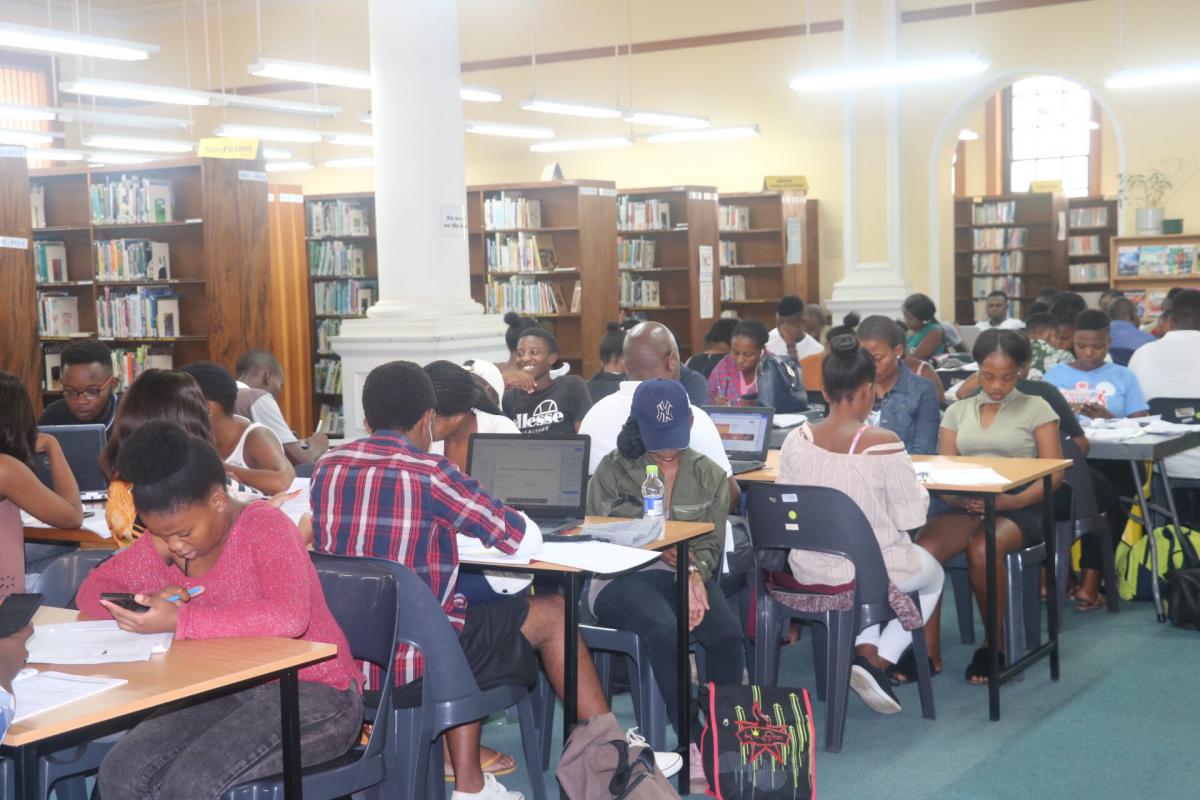The commemoration of 30 years of democracy provides an opportune moment to reflect on the advancement of our democratic rights. One of our foundational human rights essential to keeping our democracy alive is access to information which is promoted through South African libraries.
Accessing information is crucial for our vibrant democracy especially since our history is marked by an apartheid regime that thrived on secrecy, lack of transparency and accountability which robbed citizens of essential information for making decisions.
Prior to democracy, access to resourceful libraries were hampered by privilege, pass laws and the banning of some literary works. This subsequently suppressed the voices of ordinary citizens and their right to information and knowledge.
Through the dawn and development of our democracy, information is made available to communities and citizens through approximately 3 000 public libraries across the country.

Every year we celebrate South African Libraries Week and the contribution of libraries to the lives of South Africans. Public libraries have become information hubs that allows citizens to embark on a journey of educational development and lifelong learning.
Through reading and learning from books, articles, newspapers, journals, scholarly works and digital resources offered in public libraries, citizens can be informed of what is happening in the world around them. This empowers South Africans to make informed decisions and be active participants in our democracy.
A key character of our nation’s libraries is that it is open and free to all, especially those individuals who are not able to afford purchasing learning resources.
South African libraries are not only custodians of knowledge and resource centres for scholars and university students, but also provide an entry point for individuals without formal education. It allows them an opportunity to develop their reading skills and expand their knowledge through the plethora of information available.
As individuals equip themselves with knowledge, it will unlock doors of economic opportunity, contributing to the fight against poverty, which forms part of our sustainable development goals.
Another national goal for our sustainable development is fostering social cohesion. Libraries are an inclusive environment that brings communities together through volunteer groups and community programmes, contributing to an exchange of ideas.
As people from diverse backgrounds and cultures gather together in their local libraries for the sake of learning and deepening their intellectual knowledge, it also enhances the cultural wealth of our nation.
One of the ways public libraries keep our culture and heritage alive is through the provision of books and reading material in indigenous languages, reflecting the rich cultural diversity of our nation.
Our culture and heritage is also preserved in public libraries such as the National Library of South Africa, which is co-located in Pretoria and Cape Town and holds approximately 2 million books with capacity for another 3.5 million.
Our National Library, supported by the Department of Sports, Arts and Culture, is mandated by parliament to collect and preserve important documents and publications, which include articles, Africana, periodicals and even medieval and renaissance manuscripts such as the first and second Shakespeare folios and a Latin copy of the four gospels.
Some of our nation’s renowned libraries include the National English Literary Museum in Grahamstown which collects and protects creative writings of Southern African writers, while the Bloemfontein Public Library houses several Africana and drama texts.
We encourage South Africans to make use of their local libraries which can be found throughout the country and gain access to books and a world of knowledge that will open doors of opportunities and drive our democracy forward.

 Facebook
Facebook Twitter
Twitter WhatsApp
WhatsApp